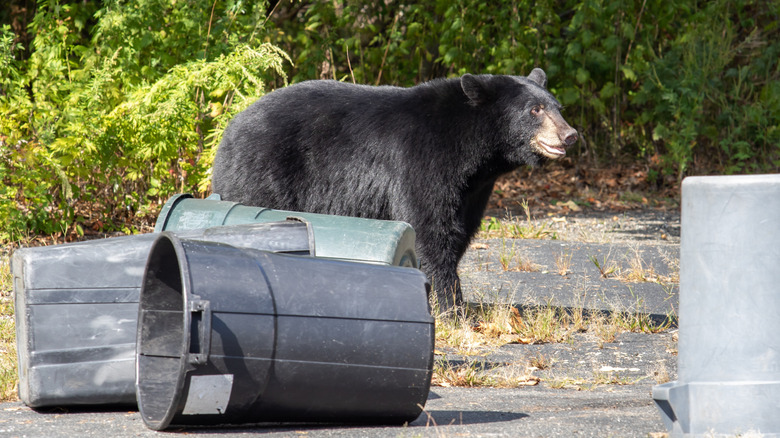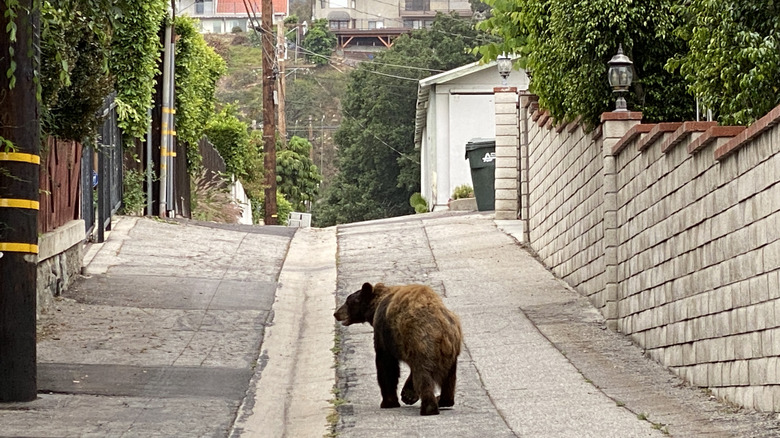Why You Should Reconsider Adding Mothballs To Your Garbage To Repel Bears
While they are majestic to see from afar, bears are not an animal that you would want to run into by accident. Although encountering one of these animals while hiking out in bear country is always a possibility, what's even more frightening is having a bear wandering around your neighborhood trying to break into your home or garbage. Unfortunately, bears can be pretty determined, and even if you have implemented all the tricks to help keep bears away from your home, you may still get the occasional troublesome visitor. When this happens, it is tempting to turn to viral solutions; however, it is important to be careful when using any unproven tips to repel bears, because some — like mothballs — aren't a good idea.
In fact, you should think twice before using mothballs in your garbage (or around your yard) to deter bears. This is especially true because mothballs are actually toxic to breathe in for both humans and pets and are not something you want to have releasing gases around your house, even if it is outside. Mothballs are classified as a pesticide and are controlled by the Environmental Protection Agency. Because of this, using them in any way other than instructed on the label (by putting them in an enclosed wardrobe or cabinet to kill moths) is often illegal. Despite how often the trick is touted online, in reality, using mothballs isn't a very effective repellent and will likely have little to no success fixing your bear problem — just like how mothballs don't work to protect your campsite from coyotes. Let's dive into why.
Why mothballs likely won't work against bears and what to do instead
Although some people believe that putting mothballs in your trash cans is an effective way to repel dumpster-diving critters like bears, in reality, mothballs are often not strong enough to do anything besides repel insects and kill moth eggs. In order to repel a larger animal with mothballs, you would need a ridiculously large amount of much stronger mothballs than what is commercially available. On top of this, research shows that bears are naturally curious and may be attracted to new smells even if we think of them as unpleasant. In fact, the reason why you are not supposed to put bear spray on your clothes is because if the spray does not get inside a charging bear's eyes, nose, or mouth and cause discomfort, the smell of it may actually attract a bear to come investigate instead of deterring it. Similarly, reconsider the placement of your bird feeder if you have one in your yard, as this scent can attract more than just your avian friends.
So, what is the best way to prevent bears from breaking into your garbage? As it turns out, the simple solutions are typically the most effective — like putting all trash and food in bear-proof containers or storing your trash cans in your garage and closing and locking all doors and windows. Furthermore, if a bear does come to investigate your home and try to get into your trash, it is important to scare the bear away with loud noises like shouting, banging pots and pans, or blowing an air horn. This will teach the bear that they are not welcome and would be better off trying to get into someone else's garbage.

